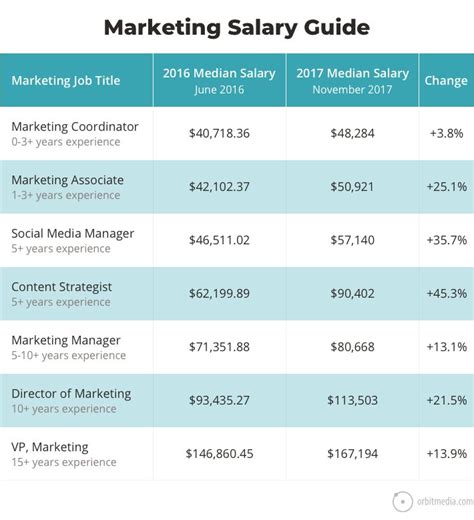Defining the Role of a Digital Marketing Director
A digital marketing director is a senior-level executive who leads a team responsible for developing and executing digital marketing campaigns across a variety of channels, including social media, search engine optimization (SEO), email marketing, and pay-per-click (PPC) advertising. They play a crucial role in driving website traffic, generating leads, and increasing conversions for their organizations.

Factors Influencing Digital Marketing Director Salary
The salary of a digital marketing director can vary significantly depending on several factors, including:
- Experience: Directors with more years of experience typically command higher salaries.
- Education: A master’s degree or PhD in marketing, business administration, or a related field can increase earning potential.
- Industry: Directors working in competitive industries, such as technology or healthcare, may earn more than those in less competitive industries.
- Location: Salaries tend to be higher in metropolitan areas with a high cost of living.
- Company size: Directors working for large corporations often earn more than those working for small businesses.
Industry Benchmarks
According to the Society for Human Resource Management (SHRM), the median annual salary for digital marketing directors in the United States is $115,100. However, salaries can range from $70,000 to $160,000 or more, depending on the factors discussed above.
Key Responsibilities of a Digital Marketing Director
The key responsibilities of a digital marketing director typically include:
- Developing and implementing comprehensive digital marketing strategies
- Leading a team of digital marketing professionals
- Managing budgets and resources
- Monitoring and measuring campaign performance
- Staying abreast of industry trends and best practices
- Collaborating with other departments, such as sales and customer service
Skills and Qualifications
To be successful in this role, digital marketing directors must possess a strong combination of hard and soft skills, including:
- Technical skills: Excellent proficiency in digital marketing tools and technologies
- Strategic thinking: Ability to develop and execute effective marketing campaigns
- Leadership skills: Ability to motivate and manage a team
- Communication skills: Ability to communicate effectively with clients, colleagues, and other stakeholders
- Analytical skills: Ability to interpret data and draw meaningful insights
Career Growth and Advancement
With experience and proven success, digital marketing directors can advance to even higher-level positions, such as chief marketing officer (CMO). They may also choose to specialize in specific areas of digital marketing, such as content marketing or social media marketing.
Tips for Negotiating a High Salary
When negotiating a digital marketing director salary, consider the following tips:
- Research industry benchmarks: Determine the average salary for similar positions in your industry and location.
- Highlight your skills and experience: Emphasize your relevant experience and demonstrate how you have contributed to the success of previous organizations.
- Negotiate a competitive package: Consider not only salary but also benefits, bonuses, and other perks.
- Be prepared to walk away: If the company is unwilling to meet your salary expectations, be prepared to decline the offer.
Conclusion
The salary of a digital marketing director can vary significantly depending on several factors. By understanding the industry benchmarks, responsibilities, and skills required for this role, you can effectively negotiate and secure a competitive salary.
Additional Insights
- According to Glassdoor, the average base salary for digital marketing directors in the United States is $120,000 per year.
- The American Marketing Association (AMA) reports that digital marketing directors with over 10 years of experience earn an average of $145,000 per year.
- In larger metropolitan areas such as New York City and San Francisco, digital marketing directors can earn salaries exceeding $160,000 per year.
